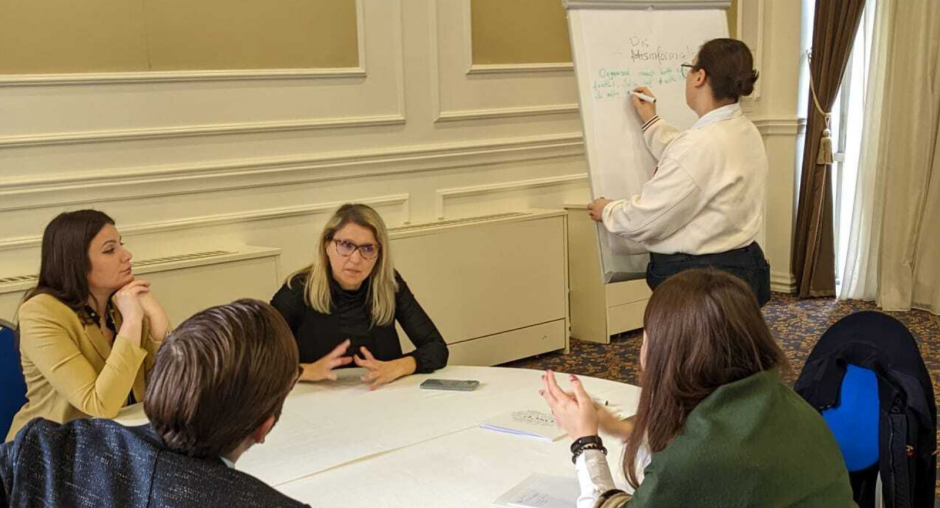Information literacy, gender equality, preventing violent extremism and radicalization focus of OSCE training organized in Skopje

How can societies better challenge disinformation? How does gender equality relate to radicalization and violence in the digital space? How can individuals become better equipped to navigate the complex and dynamic online universe of information? These were some of the questions at the heart of a three-day training workshop held in North Macedonia from 5 to 7 December.
The event brought together 20 policy-makers, government officials from the local, regional and national levels, as well as civil society actors and leaders from North Macedonia that are active in the fields of preventing violent extremism and radicalization that lead to terrorism, education, media and media regulation as well as law enforcement.
“People, youth in particular, recognize that disinformation is most prevalent on social media. At the same time, they also obtain most of their information through social media and continue to spread this information on social media platforms without fact-checking. This is important food for thought, and something we need to address” said Marina Trajkova with the Agency for Audio and Audiovisual Media Services, Human Rights and Media Literacy Unit.
During the first two days of the training, participants focused on the issues of disinformation and its impact on society, digital citizenship and media literacy. They explored how these matters should be incorporated in initiatives dedicated to Preventing Violent Extremism and Radicalization that Lead to Terrorism (P/VERLT), in a community-oriented and human rights-centered approach. The last day of the training was dedicated to identifying the connection between gender and violent extremism, and emphasizing the importance of integrating a gender perspective in their P/VERLT activities.
“There is often an assumption that women are peaceful, while on the other hand it is taken for granted that violent acts are carried out by men, without explicitly analyzing what the gendered root causes of this violence are. Thus, the importance of developing cutting-edge policy tools on the nexus of gender equality and security should be high on agenda,” said Vera Strobachova-Budway, Senior Co-ordination Adviser at the OSCE Gender Issues Programme.
This event was organized by the OSCE Transnational Threats Department in co-operation with the Gender Issues Programme, through its WIN project, and the OSCE Mission to Skopje. It will be followed by more training workshops on this topic in other OSCE participating States in South-Eastern Europe and Central Asia in 2023.
